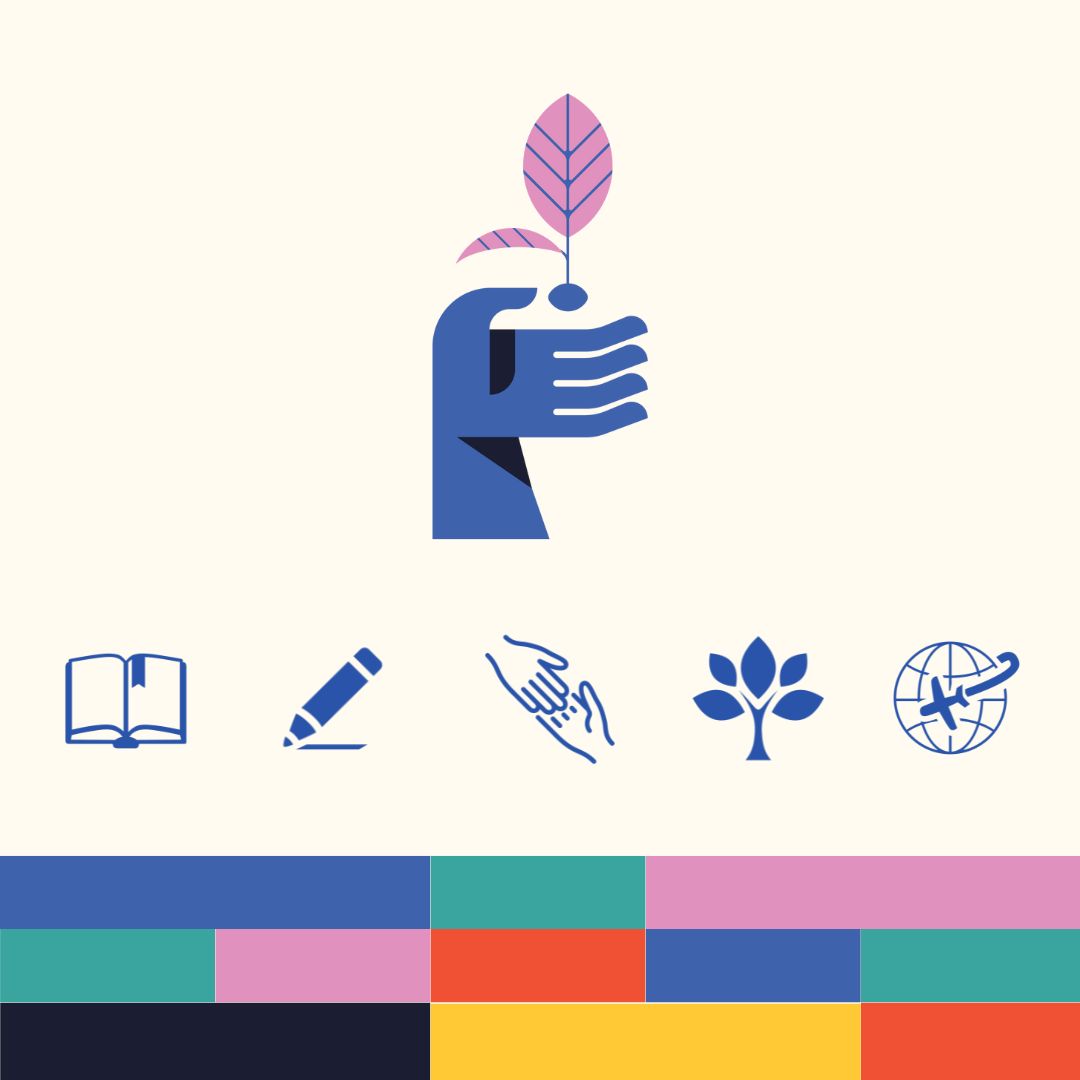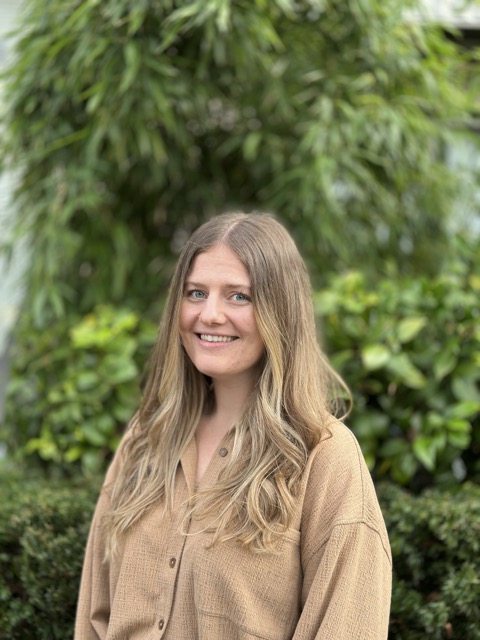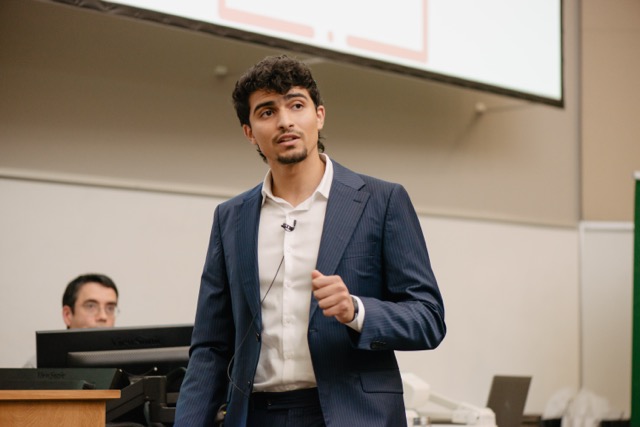Carrying the legacy forward: Meet some of the inspiring alumni of the Flight 302 Legacy Award


The Flight 302 Legacy Award was created to honour the remarkable individuals lost in the Ethiopian Airlines Flight 302 tragedy — scholars, advocates and changemakers who dedicated their lives to building a more sustainable, compassionate world. Supported by Transport Canada, this award provides vital financial support to students whose studies and aspirations reflect the same drive to create positive change.
Through their research, community work and leadership, these alumni continue the mission of those we lost — turning passion into meaningful action and shaping a brighter future for us all.

Daniel Ho, University of Waterloo
As a student of the University of Waterloo, Daniel Ho is steadily turning his dream of becoming a pilot into reality — a journey that gained momentum thanks to the support of the Flight 302 Legacy Award.
This award also came at a pivotal time when Daniel was beginning his flight training journey, giving Daniel the confidence and resources to begin flight training while applying what he learned in the classroom. Through an internship as an aviation student consultant, he contributes to projects that shape how airports serve communities more efficiently, safely and accessibly. Daniel remains active in the aviation community by volunteering at the Waterloo-Wellington Flight Centre and at various airshows in the region.
He honours the legacy of Ethiopian Airlines Flight 302 by holding himself to the highest standards of safety and ethics — on the ground and in the air. His journey shows how Canada’s universities — and support from awards such as Flight 302 — prepare students to be ready to succeed in Canada’s labour market.

Timilehin Oguntuyaki – Memorial University of Newfoundland
As a graduate of the University of British Columbia and a researcher at Memorial University of Newfoundland, Timilehin Oguntuyaki is putting his education to work in ways that matter — advancing climate science while building stronger, more inclusive communities.
With support from the Flight 302 Legacy Award, Timilehin was able to focus on his doctoral research in geological carbon sequestration — the process of capturing carbon dioxide (CO2) and storing it deep underground in geological formations, aiming to prevent CO2 from entering the atmosphere and contributing to climate change — a field critical to long-term climate resilience and national prosperity. The award has been a catalyst in his journey, enabling him to balance education and job readiness with tangible contributions beyond campus.
While completing his studies, Timilehin served as a Climate Action and Education Facilitator with Conservation Corps Newfoundland and Labrador. He led workshops on climate science, sustainable practices and local environmental action — encouraging young people and communities to get involved in the green economy.
Today, through his work at econext, he’s helping others overcome barriers to employment and access meaningful careers in Newfoundland and Labrador’s growing green workforce. His goal: to share climate knowledge in open-access platforms so it reaches researchers, policymakers and communities — especially those most affected by climate change.
Timilehin’s journey reflects the power of Canadian universities to prepare graduates to meet today’s workforce needs — in climate, in sustainability and in the industries shaping Canada’s future.

Lauren Smith, Simon Fraser University
As a graduate of the University of Victoria, Simon Fraser University and recipient of the Flight 302 Legacy Award, Lauren Smith is turning her academic achievements into a career as a Natural Areas Planner.
Lauren works with municipalities across British Columbia to develop natural asset inventories and create biodiversity conservation strategies — ensuring nature remains accessible and resilient balancing urban development. Her research — grounded in practical conservation planning, laid the foundation for a career dedicated to protecting natural spaces that many Flight 302 victims value deeply.
Now working towards her Registered Professional Biology Technologist and her Registered Professional Planner designations, Lauren continues to carry that legacy forward — applying her education to real-world challenges and strengthening Canada’s environmental resilience. Her story shows how Canadian universities are equipping students with the knowledge, tools and experience to meet Canada’s evolving workforce.

Zak Kaal, University of Alberta
Receiving the Flight 302 Legacy Award allowed Zak Kaal to complete his research and develop a method to the produce renewable aviation fuel from waste products — a breakthrough with real world applications. His work transforms landfill waste into sustainable fuel, helping reduce emissions and move Canada’s sector toward a lower-carbon future.
Zak’s research is not only a scientific achievement — it’s a tribute to the legacy of the victims of Flight 302 as it addresses climate challenges with tangible solutions that serve the people and the planet.
A graduate of the University of Alberta and now an instructor at the Alternative Energy Technology program at the Northern Alberta Institute of Technology, Zak is paying it forward. He continues to advocate for sustainability and climate action, helping train the next generation of clean energy professionals. Zak is an example of the impact higher education can have in preparing job-ready graduates and advancing Canadian-made climate solutions.

Olayinka Ariba, Western University
Since receiving the Flight 302 Legacy Award, Olayinka Ariba — a university scholar and changemaker from Western University, has had the incredible opportunity to travel to Lagos, Nigeria, to conduct research focused on the experience of child separation among mothers who are experiencing homelessness. This has been a deeply impactful experience for Olayinka, both academically and personally.
The scholarship allowed Olayinka to cover travel and living expenses for her research, which included interviews with 11 mothers who had experienced homelessness and child separation. She also collaborated with local organizations to better understand the structural challenges these communities face.
Looking ahead, Olayinka hopes to continue deepening her work at the intersection of social policy, gender and housing justice. She plans to expand her research across Nigeria and Canada, informing inclusive shelter policies and child welfare practices. Through publishing and advocacy, she’s ensuring the voices of marginalized women are heard and continuing the legacy of the tireless advocates who were onboard Flight 302.Olayinka’s work exemplifies the impact of university graduates in tackling real-world challenges and generating solutions for the globe’s most vulnerable populations. Supported by Canadian universities and the Flight 302 Legacy Award, graduates like Olayinka are leading change at home and around the world.